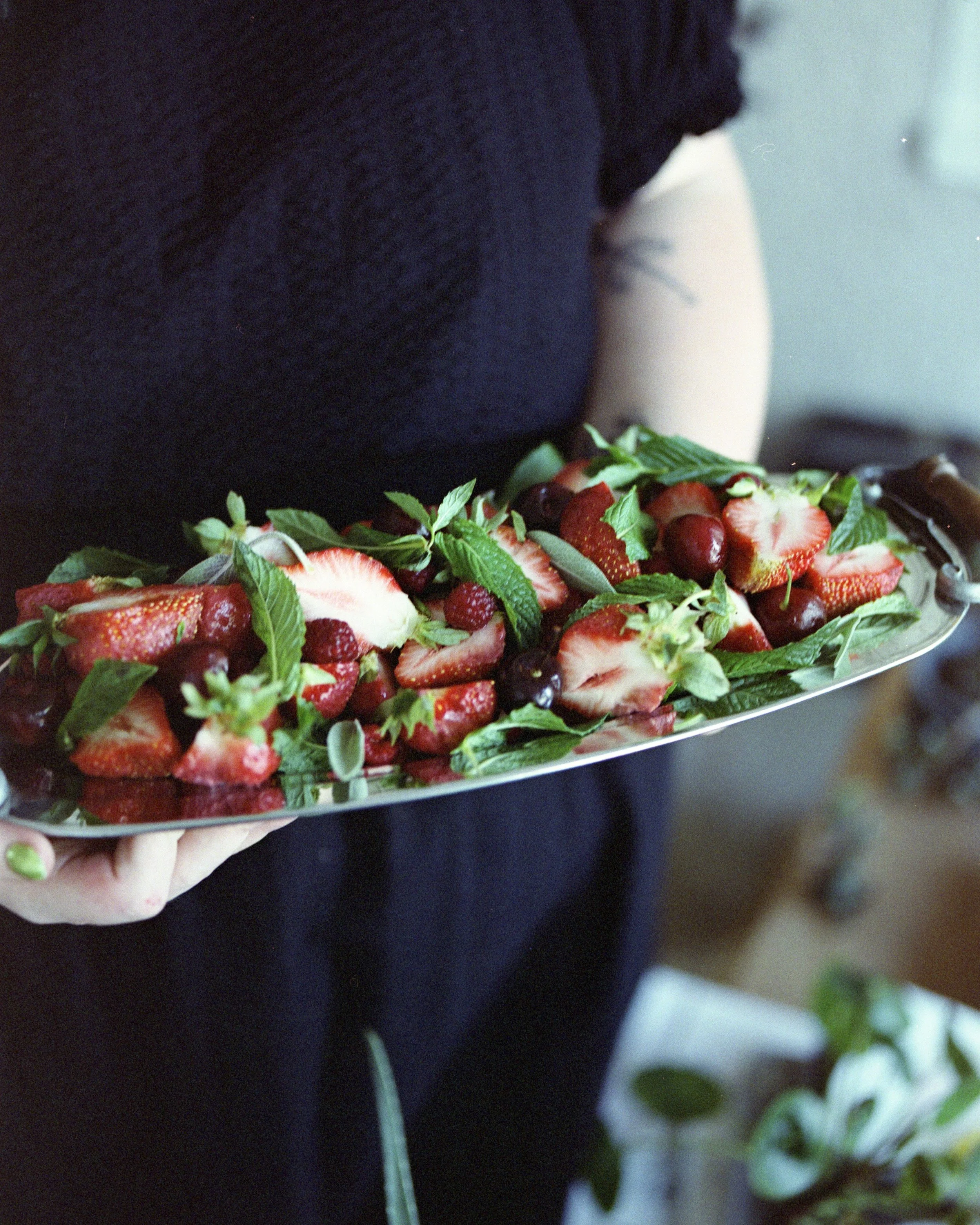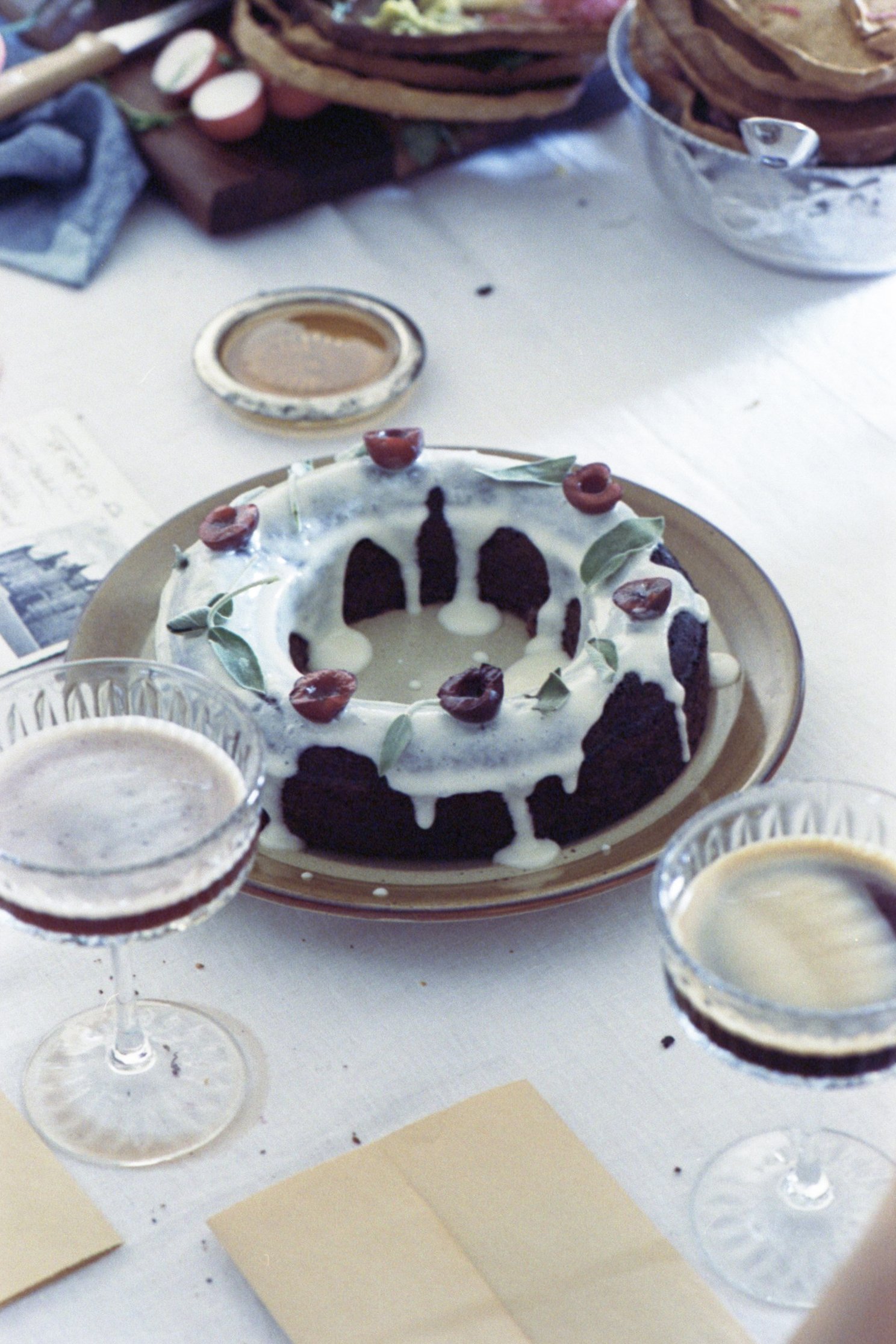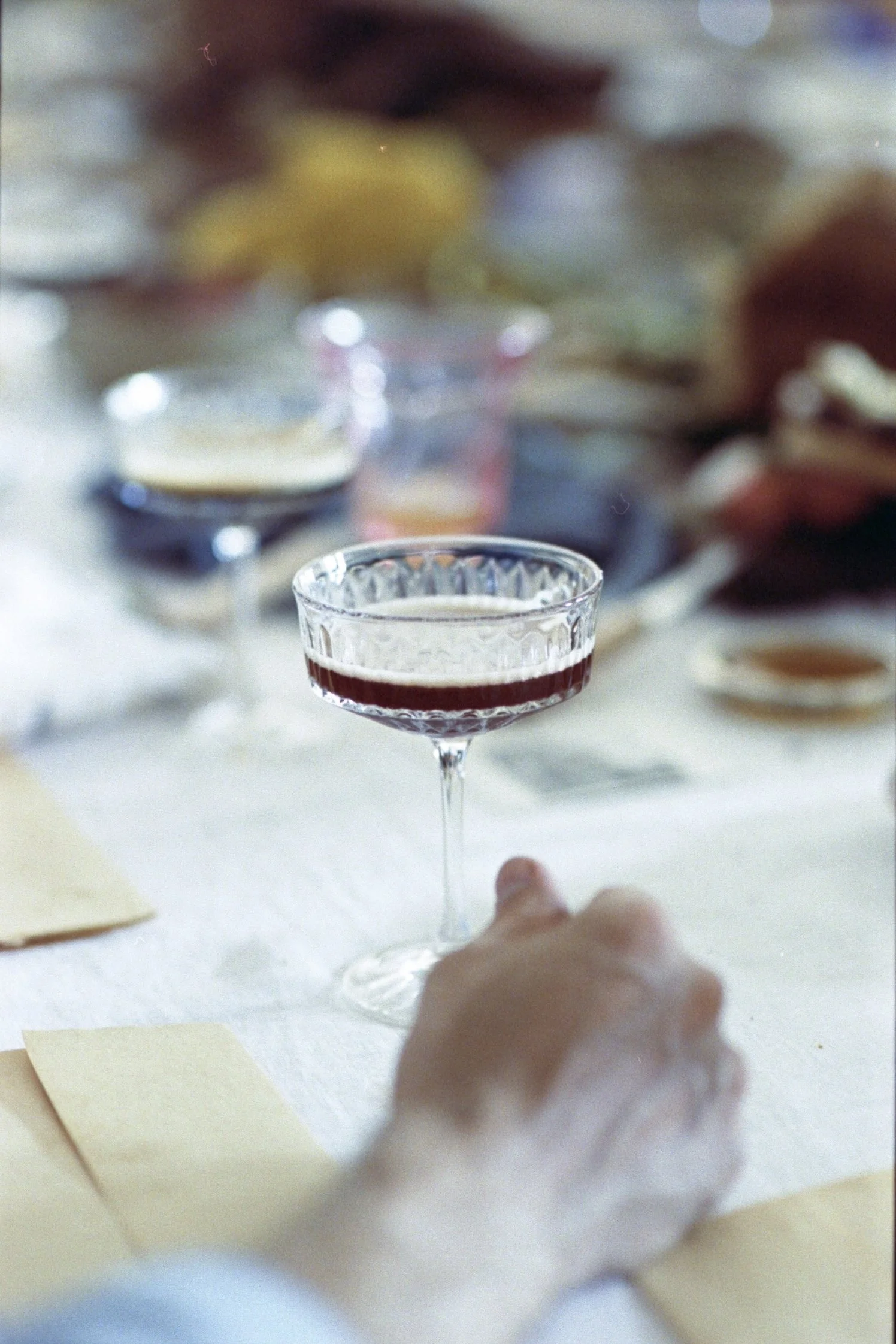DIVINE OFFICE
Summer Solstice meal with Grace Seibert + Marlowe Harp
Held Wednesday, June 21, 2023, Divine Office offered an indulgent revisioning of Middle Ages meal customs, foods, and libations by cook Grace Seibert and barista Marlowe Harp as part of Go More Slowly Over The Earth. The evening included music by Tuning Forks and intention setting with Lauren Day.
FOOD
Spit-roasted Lamb
Summer garden
Winter vegetables, preserved
Trenchers
Brødtorte with rye, honey, fruit
DIVINE OFFICE
Divine Office, or Liturgy of the Hours, is a set service of praise and worship consisting of Christian psalms, hymns, prayers, and readings. Public prayer at certain times in the day and night are ancient practices and have never been confined to Christianity, let alone Catholicism. Following the practice of beginning the day around sunset with prayer (maariv) as Jews have done well before the early Catholic Church, Christians termed this time of devotion as Vespers. This is one of the three Major Hours in Divine Office, which lives alongside three Minor Hours and two additional, newer Hours. The following depicts Divine Office as monks, specifically, would follow in the Middle Ages:
Vespers: sunset (around 6pm, though adjusted depending on the season)
Compline: before bed (9pm)
Matins: between midnight to dawn
Lauds: at the conclusion of Matins
Prime: sunrise (6am)
Terce: midmorning (9am)
Sext: midday (12pm)
None: midafternoon (3pm)
This celebration of the summer solstice begins with our own Vespers before sunset. Our dinner will call upon the methods and familiarity of the time with a new set of rituals and devotion – through food, drink, art, and music. Hired Medieval cooks and anyone making their own meals from recipes (which they often heavily documented and referenced) would use psalms, hymns, and prayers to keep time. This practice left less room for inconsistency and acted as a charm to protect their meals.
Medieval palettes and customs were far more sophisticated than usually given credit. We can credit the lack of accessible knowledge on how they lived and thought to the destruction of mountains of documentation. Countless scholars, researchers, and hobbyists have paved the way for our current understanding of the Medieval person through plentiful misinterpretations and insulting assumptions. We are alchemizing what we think we know and offering it to you in a modern, immersive evening.
Lamb is canonically spit-roasted and served atop a handmade board coyly displaying art from the time period. Taste the fire that cooks your meal and scents the air, also filled with music playing deliciously from the patio. Guests are invited, and required, to no longer eat with expectation. Dinner will be served on modern trenchers, or bread plates, and the only tools given will be knives, a few spoons, and your hands. All drinks are crafted and slowly curated to transport us to their tables 1,000 years ago. Medieval eaters were tied to the seasons unless they took from the various preserved dishes cleverly created from seasons past, just as we shall do. Indulge in the summer solstice through flame, companionship, and the release of inhibition.
- GRACE SEIBERT
Documentation by Pink Bike Media and Slagseed



























